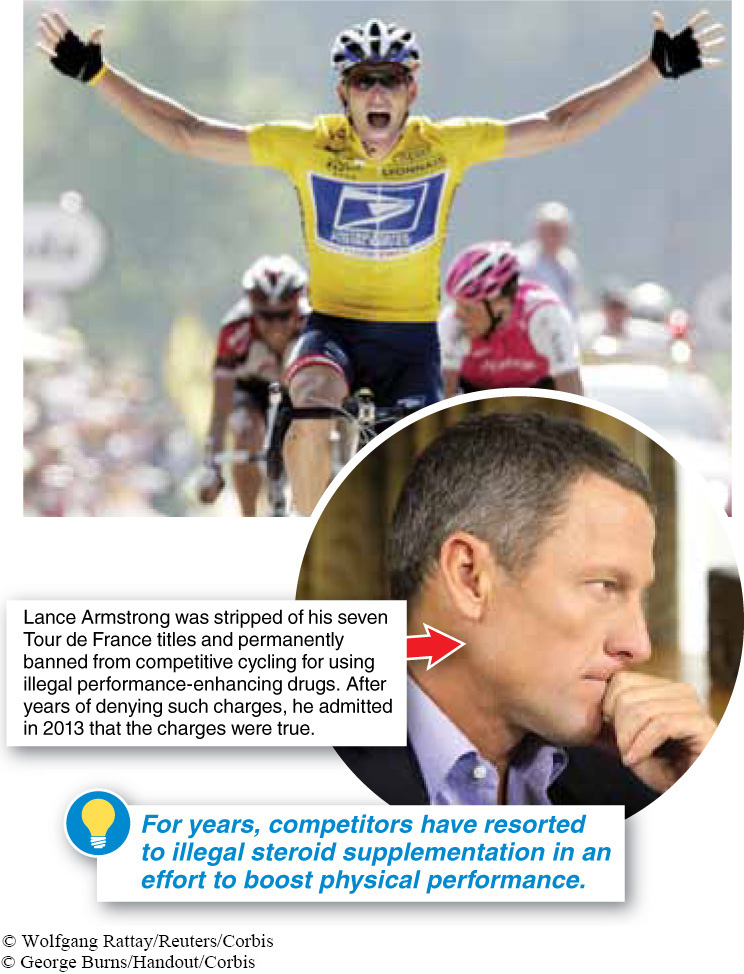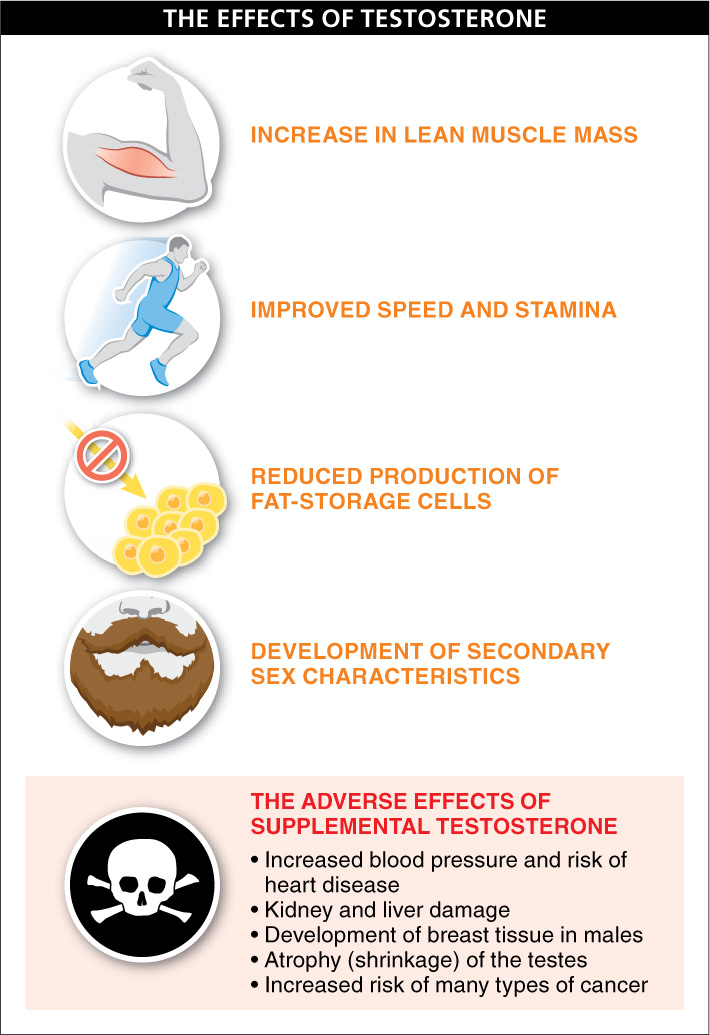

The Tour de France is one of the world’s most grueling tests of strength and endurance. The annual bike race occurs over three weeks, as riders cover more than 2,200 miles (3,500 km), in 21 separate stages. In 2006, an American rider named Floyd Landis, in 11th place overall, turned in a performance in stage 17 that was so improbably fast that some commentators called it “the greatest performance ever.” His win brought him within 30 seconds of the overall lead and propelled him, over the final four stages, to the Tour de France victory.
But Landis’s glory was not to last. Less than a week after his victory, it was announced that he had tested positive for unusually high levels of testosterone, which a second test confirmed. The typical ratio of testosterone relative to the hormone epitestosterone in men is 1:1 or 2:1. While the Tour de France allows ratios of up to 4:1, Landis’s level was 11:1. Moreover, the lab tests detected a synthetic form of testosterone in his bloodstream, in addition to the naturally produced hormone. Landis was stripped of his title and banned from the sport for two years.
Scandal has continued to surround the bicycling world, perhaps peaking in 2012 when Lance Armstrong, despite his denials, was also found to have used illegal performance-
While the revelations that competitors resorted to illegal supplementation in an effort to boost physical performance have been disappointing, the history of sports is littered with drug scandals, frequently involving testosterone or its variants. Olympic gold medalist Ben Johnson, for example, was stripped of his medal and the world record for the 100-
984
How do steroids affect a person’s physique and performance?
Testosterone and many structurally similar steroid hormones affect the composition of the body. Experimental studies of testosterone supplementation in men reported weight gains of 5–

Testosterone has also been shown to influence locomotor performance—
Such testosterone supplementation causes changes in physique and physical performance by activating processes that lead to increased muscle mass. Produced primarily by the testes in males (but also by the adrenal glands of both males and females), testosterone binds to receptors in target cells, then moves to the nucleus and influences gene expression (see Figure 24-5). The cells increase their protein synthesis and grow, resulting—
There are numerous adverse effects to supplemental steroid hormones. They include increased blood pressure and risk of heart disease, damage to the kidneys and the liver (where the steroids are metabolized), development of breast tissue in males, and atrophy (shrinkage) of the testes as negative feedback leads to reduced production of testosterone in response to the increased levels of circulating testosterone (FIGURE 24-16). Also, because testosterone increases cell division—
TAKE-HOME MESSAGE 24.6
Testosterone and other similar hormones affect a person’s physique and physical performance by influencing gene expression and protein synthesis in cells with the appropriate receptors. For example, testosterone increases muscle mass while reducing fat storage and can increase speed and stamina. There are also numerous adverse effects to supplemental steroid hormones.
List at least two desirable and two undesirable effects that can be attributed to testosterone supplementation.
Testosterone supplementation can increase lean muscle mass, speed, and stamina, and can decrease fat-storage cell production. However, it also can increase blood pressure and risk of heart disease. Kidney and liver damage, testicular atrophy, and breast development in males are also possible. Likewise, there is an increased risk of many types of cancer.
985